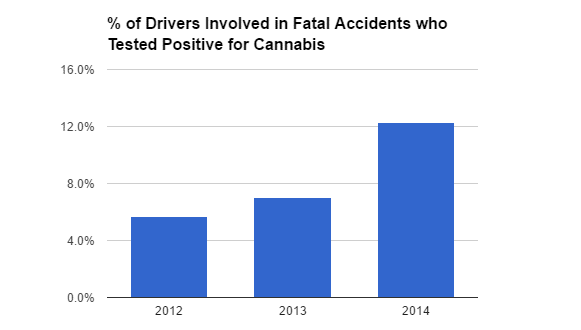Entrepreneurs Sean Sheridan and Chris Elkins are preparing to open the World’s First Marijuana Mall in Trinidad, Colorado. They have high expectations for the 5 dispensaries they plan to bring in: “If they’re not doing $5 million a year, then we’re not driving enough traffic,” Sheridan said. But the important question we should be asking is: How about people going to get home?
Driving after Smoking Marijuana
Ride-sharing companies will play an important role in making your next trip to the pot mall even safer & more enjoyable. As part of their “Drive High, Get a DUI” campaign, the CDOT even suggests using Uber and Lyft.
Here’s a worrying trend: The CDOT reports that since marijuana use became legal in January 2014, the percent of drivers involved in fatal accidents who tested positive for marijuana has increased from 4.7% in 2012 to 12% in 2014.
Is there a DUI for Smoking Marijuana and Driving in Colorado?
We spoke with Attorney Jay Tiftickjian, an expert in Colorado marijuana dui law, and here’s what you need to know:
From a legal perspective, drinking and smoking pot are treated the same if your ability to operate a motor vehicle is impaired – even to the slightest degree. There’s actually a legal term for driving while high in Colorado: DUI-D (driving under the influence of drugs) and there are other terms to understand, like DUI and DWAI.
How much marijuana can I use and then drive?
With drinking alcohol and driving, your blood alcohol content is easily determined when you submit to a blood test (check out this BAC Calculator). With marijuana, however, the law states “Colorado also has an inference of impairment with a blood test of 5 nano grams or more of active THC.” So the officers must determine if you are ‘impaired’ while driving in order to request that you submit to a blood test to determine the level of active THC in your system. Here are some Do’s and Don’ts if you get pulled over.
What’s the bottom line?
The current law allows those charged with driving under the influence to try and prove they weren’t actually impaired, even if they tested above the 5-nanogram limit. As it turns out, some drivers who have faced DUI-D or DWAI for marijuana impairment in court have had their charges reduced and, in some cases, even dropped. Now is a good time to put Jay’s number in your smartphone in case you ever have questions related to Colorado’s DUI or DWAI laws: (303) 991-5896. To learn more, visit CriminalLawDenver.com.









